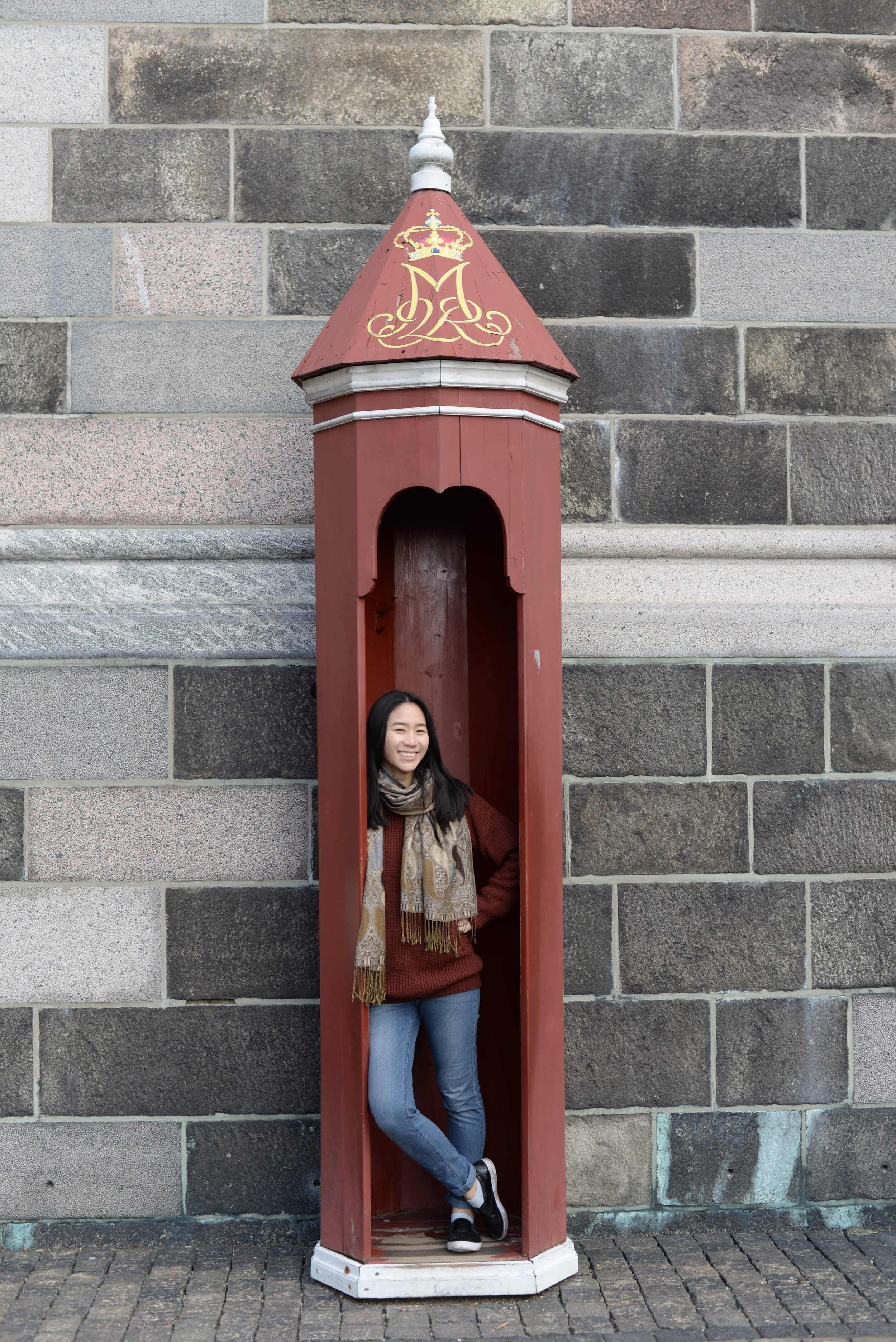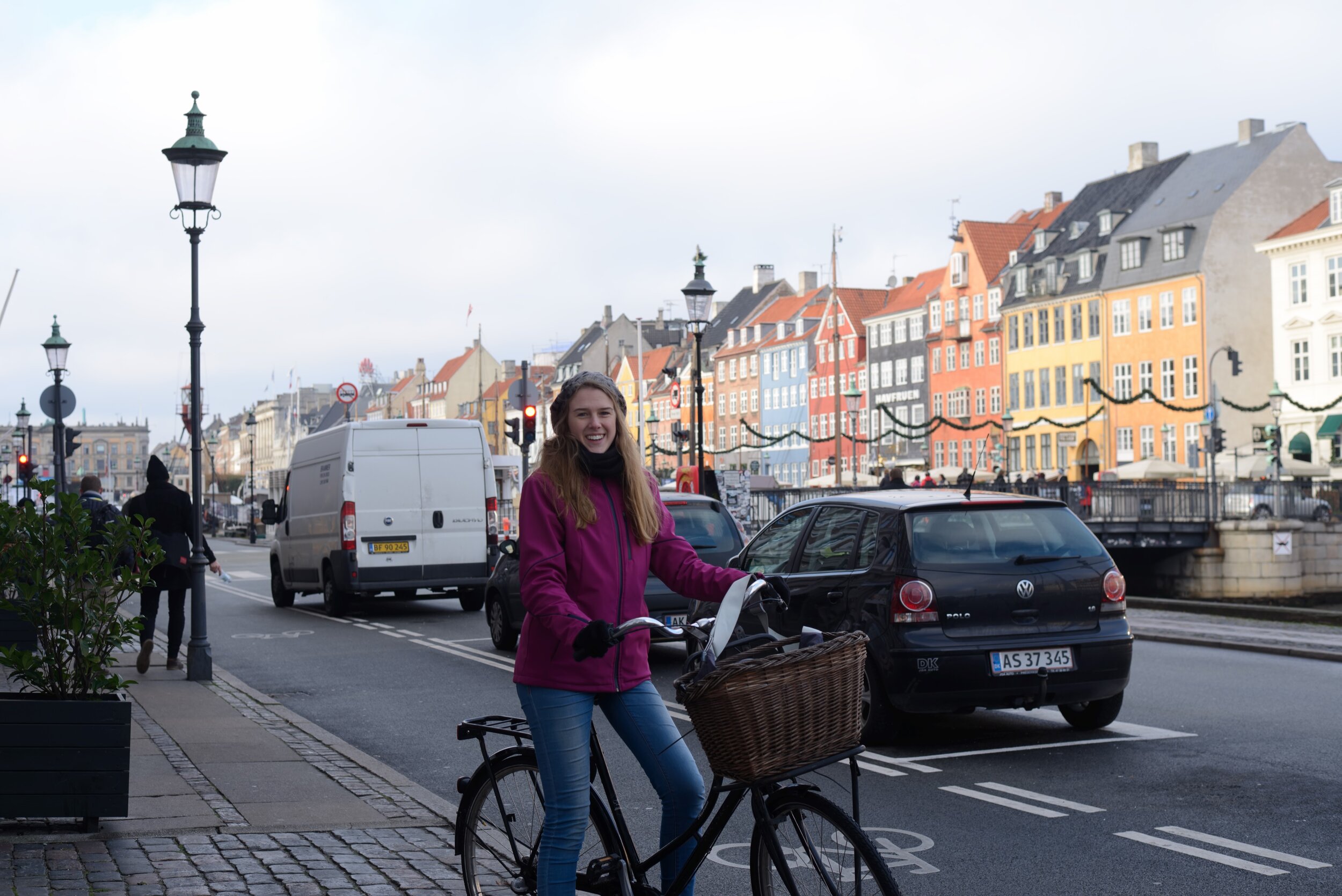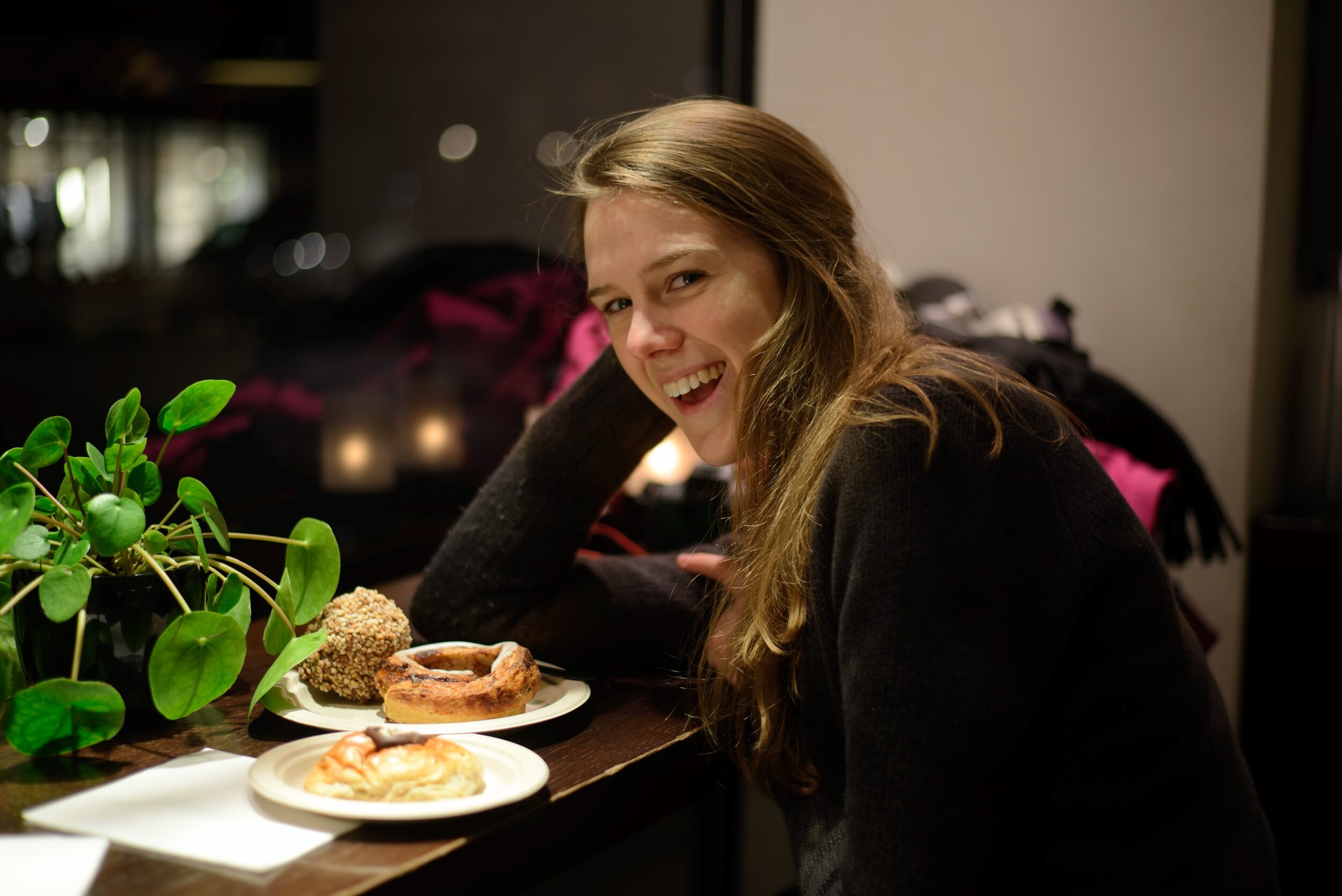How to Plan a Sustainable, Eco-friendly, Green Wedding: Learn from a Bride Who Has Done It
Invitation suite by @gardensofgrace
The wedding industry generates a huge amount of revenue each year and with that a lot of waste is inevitably produced. So how do you plan a celebration like a wedding or event with the environment in mind? The truth of the matter is that there is no such thing as a 100% sustainable, eco-friendly, or green wedding. The focus here is on making deliberate choices to lessen the negative impact we have on the environment and perhaps even benefit the environment.
Today, I am excited to share an interview I had with Christine about her thoughts on planning a green wedding. Christine is my good friend who I met in the Netherlands during our exchange program. While there, we took a course called “Business, Sustainability, and Innovation” in which we collaborated as a group of seven girls (whoo girl power) to do a sustainability assessment of a chosen corporate company. We used seventeen tools such as life cycle assessment and triple bottom line to analyze our findings into a comprehensive report. I have valued my friendship with Christine and the passion we share to live responsibly and continue making sustainable changes. We got to frolic the world together and learn from our surroundings, travels, and each other. She was my constant photography subject and creative muse.
Christine is based in Australia and now works in climate change as a consultant. I love the thoughtful responses she had to the following questions, as well as the tips she shared.
What do you think it means to have a sustainable, eco-friendly wedding?
I think having a sustainable or eco-friendly wedding means considering the environment and the long-term impact of your wedding while you’re planning and making decisions accordingly. Basically, taking into account the bigger picture and the environment and the impact that you’re having.
What tips would you give to someone who wants to plan a green wedding?
I would say choose your battles. Decide what is really important to you on your day and stay focused on those things. Don’t worry about what you’re supposed to have or what someone else has had or what people will expect at your wedding. Just be really true to yourself and stay focused on what is the most important thing--what you want, what your partner wants, and what you think is really important. This will help guide how and where you spend your money, where you decide something doesn’t really matter and to let go of that.
Are there any particular resources you found helpful in planning a green wedding?
So I started off with a book that I got from Amazon secondhand. It’s an older book, but it’s called “Green Wedding: Planning Your Eco-Friendly Celebration.” There are similar books, lots of websites about green weddings like the eco-friendly guide on The Knot website. I also found that just talking to family and friends who have had a wedding before or who I look up to because they live sustainably and they take sustainable living seriously; talking to those people and discussing those things with them helped a lot.
Were there any specific measures you took to have a green wedding? What were they?
Firstly, flowers. Choose locally supplied flowers, if possible, native flowers. I live in Australia so I had a lot of eucalyptus. I also had flowers that were grown in green house in Australia, so local and seasonal. It’s better to choose flowers based on what is in season. They’ll also be cheaper, rather than having flowers flown in from another part of the world where they’re growing at the time. I definitely prefer natural, real flowers rather than fake ones as they will actually break down.
Decorations more broadly is the second one. So natural decorations like foliage from trees and flowers, they don’t end up in the landfills, or they break down at least. Think about what kind of decorations you want. I think “less is more: is a good mantra to go by. I personally hate balloons. I find them very wasteful. They’re made with plastic and helium is not ideal. If they go off into the sky that is counted as littering, at least in my state. Also, hire and borrow as much as possible. I had a lot of friends who have been married before or had other events. I borrowed stuff from them like candles and things like that. I also just hired folks from wedding stylists, and different people who lived in the area I was getting married in to help me decorate as well. I also think using lighting wisely in decorating is a great way to create an ambiance and atmosphere at your wedding without having to fill the room with stuff. I think soft, delicate lighting is really nice. We also got married outside, so we didn’t actually need to use that many decorations for the ceremony. We hired a beautiful old timber wall and just decorated it with some foliage and hanging lights.
Dress-wise I bought my dress secondhand off stillwhite.com. I personally thought this is a great eco-friendly choice. I personally wasn’t comfortable buying something to wear once and then just keeping it my cupboard for decades and eventually throwing it away anyway. I ended up saving a lot of money this way too. From my budget I got way better quality then what I would have gotten had I bought that new. It honestly would have been pretty sad if that dress had only been worn once. I got pretty good bang for my buck.
Invitations. I found an Australian company, a small business who collects office paper and recycles it to make beautiful handmade paper. I got in contact with them and sent them a design that I had made for my invite and they printed them on biodegradable paper. As they made the paper, they threw seeds into the paper, so if people wanted to plant the invitations in their garden they would grow in the garden.
Wedding favors. Instead of having little knick-knacky gifts that people tend to forget anyways on their table when they leave the reception at the end, or things like magnets that people might keep, most people only keep them for a year or so and then it ends up in the bin. We went for donations to charities. We picked three charities and we had three jars at the reception. On each person’s place setting we had a token. Basically, people could choose where they put their token. Each token represented a couple dollars and they could choose which charity they wanted to support. The money we would’ve put towards to wedding favors we gave to the charities instead.
There’s a lot of little things, a lot of little choices you can make instead. The simple one that was definitely more eco-friendly was that instead of having confetti at the end of the ceremony we used rose petals. You can also use rice or something if there’s a tradition there.
Food-wise, we had as many vegetarian options as possible. [It] really makes a difference in terms of having a lower carbon footprint wedding. For meat options, things like fish and chicken are more eco-friendly options than red meat.
For drink options, we partnered with a local brewery. They supplied us with kegs which we hired from them and keg fridges. The keg fridges actually had taps on top, so for our reception we used these kegs for the beer and the cider. That meant that we could avoid having lots of bottles and reduce the waste from the beer. It also meant we were supporting a local beer company, a small company. It also meant the beer was a lot fresher and it actually had no preservatives whereas usually bottled bear does.
I think another simple thing to do is to avoid disposable cutlery, plates, cups, plastic or paper disposable things. For our wedding reception and for the ceremony we had hired glasses for people to drink out of, which is a better experience for people anyways. The people we hired them from, they basically had us put them back in the crates they had given us and they picked it up and washed it in their industrial dish washers. I think the main reason people use disposable cutlery is because they don’t want to clean it or don’t have the means to clean it. The first people we asked they said we could return them dirty and they would clean them for us. It meant that we didn’t have to go out and buy plastic plates and cups. We didn’t have to then deal with all the waste.
For our engagement party we had a barbeque and we actually asked people to bring their own picnic sets, with plate, cup and cutlery. Surprisingly, people thought that was a great idea and were happy to jump on board. It meant that we didn’t have to bring all disposable stuff to the park and people just took home their own stuff. There was a sink at the park and we just had some tea towels and dish washing liquid so if people wanted to clean off they could, or just take their dirty plates home.
That’s a good point too. Think not just eco-friendly wedding. If you can have a rehearsal dinner or engagement party or bachelorette party or bridal shower, try and think about those things there as well.
I think one thing we could have done to be eco-friendly which we didn’t do is to have a more local wedding. We had our wedding about an hour and a half out of the city where a lot of our guests live. One thing that we could have done to have it more eco-friendly is to have it in the city where it was more centralized or in the city where there was a lot of public transport options where people didn’t have to drive very far, but this is something we really wanted to stick to because we loved the venue. So again, pick what you want and what is important to you and stick to that and do the best you can do. You can also look at things like purchasing carbon offsets or donating to an environmental NGO if you feel like you want to make up for something you couldn’t do more eco-friendly.
What was your experience like planning a green wedding and wedding just in general?
Planning a wedding was a great challenge. Logistics, coordinating people, working to a timeline, and just working as a team with my husband on this huge project to pull something like this off, it taught us a lot. It was definitely all worth it. Everything worked out better than we thought in the end. It was great opportunity to bring together our families along on the journey with us, to bring everyone closer together, and to bring my husband and I closer together. If we didn’t have a green wedding, it wouldn’t have reflected us as a couple and we wouldn’t really have been comfortable with it. It was an obvious choice for us, a natural choice we decided to do. Every time we hired vendors we would discuss this with them and discuss that we were looking for opportunities to make it more eco-friendly, so like our wedding stylist, people we we were hiring gear off of.
I think a wedding should just reflect you as a couple and be consistent with how you are and how you approach your life.
Anything else you would like to add from your work or personal life?
Don’t feel overwhelmed by the things you could do to be eco-friendly or feel guilty for not doing enough. I think there are so many things that we could do—buy this product that is more eco-friendly, lots of life changes we can make. Just focus on making one change and one good choice at a time. Eventually each of those good choices will become a habit and it won’t feel like so much effort. One good choice does make a huge difference, so don’t give up everything entirely because you think it’s too hard or “I can’t do enough anyway.” I think it’s easy to feel that way, but just focus on making one good change at a time. For example, if you feel like being vegetarian is too much of a step for you, why not have one meat free day a week? If you want to have eco-friendly skincare and makeup products, why not next time something runs out you just do a bit of research and just try different products and see how it goes. You might end up loving it. If you just focus on making small changes, you might eventually change all your makeup or maybe you decide you’re going to leave your makeup, but focus on cleaning products you use at home, or where you get your groceries. Whatever it might be, don’t feel overwhelmed, don’t feel guilty about not doing enough, any small change makes a difference.
I’m so incredibly thankful to Christine for so graciously agreeing to offer her insight and personal experience into how to plan a sustainable wedding. I definitely picked up a few new tips and I hope you learned something new too! If you’re planning a celebration anytime soon, I hope you found encouragement from Christine knowing that “any small change makes a difference.”
Have any additional questions or tips? Leave a comment below to let others know.
List of vendors for sustainable options to consider:
Dress:
Still White, secondhand dresses
Once Wed, used and sample dresses
Borrowing Magnolia, secondhand
Rent the Runway, rent for rehearsal dinner or bridal shower dresses
Borrow or rent from friends.
Digital Invitations: paperlesspost.com
U.S. based recycled paper and seed paper invites: Forever Fiances
Florals:
Local and seasonal blooms from small farms/businesses like Flower Box Studios or foliage from your yard. Check out this blog for an example of what flowers grow throughout each season.






